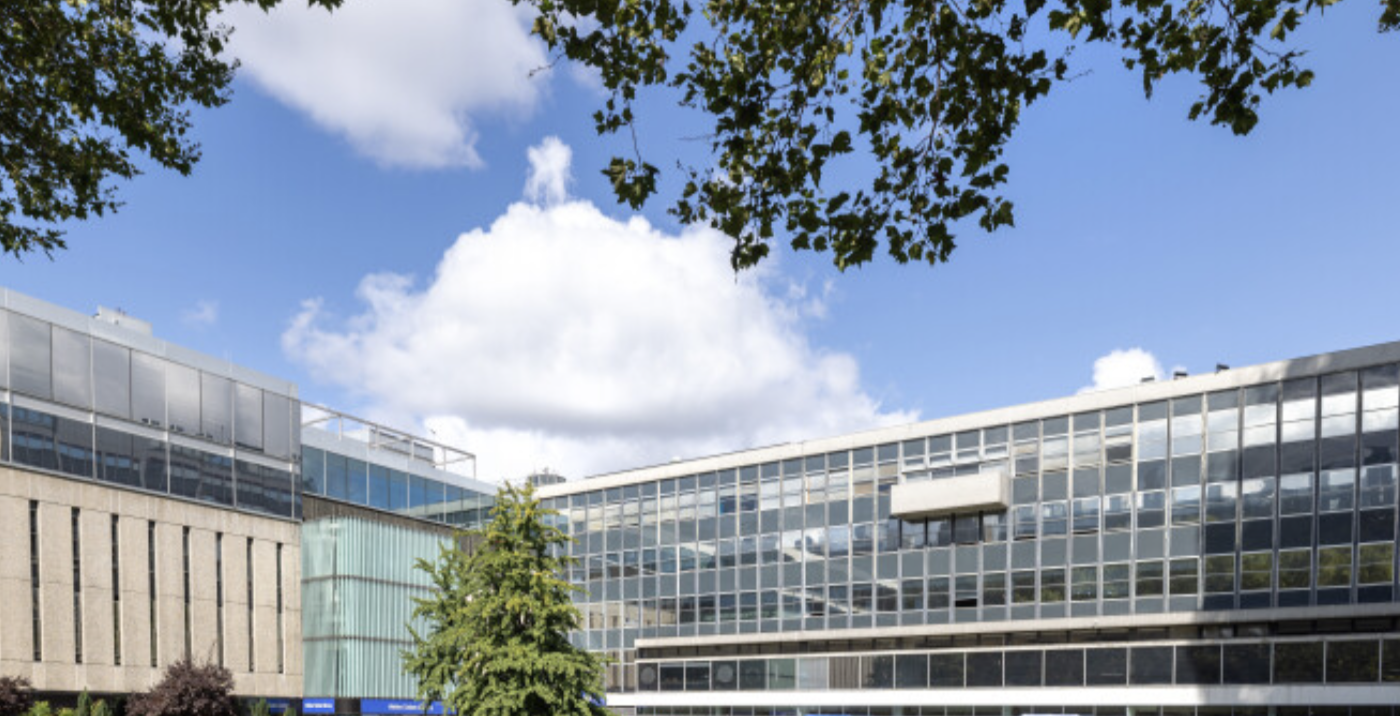The acceptance rate at Imperial College London has always been quite competitive, with figures typically hovering around 10-15% for undergraduate courses. This reflects not only its esteemed reputation but also the high standards expected from applicants, particularly in STEM fields. In 2025, it's anticipated that this trend will continue as many students vie for limited places.
Meanwhile, agencies like Degree Gap provide essential support to those aiming for top universities such as Cambridge. With its unique rigorous application process—like interviews and high A-Level grades—preparation is key. Engaging in extracurricular activities further enhances one’s application profile.

Imperial College London is renowned for its high academic standards and rigorous selection process. In 2025, the acceptance rate is expected to remain competitive, hovering around 10-15% for undergraduate programmes. This reflects the university's esteemed position among the world's leading institutions, particularly in STEM fields. The fluctuating nature of acceptance rates is influenced by the number of applicants each year and the limited number of places available. Those eyeing a spot at Imperial will need to demonstrate exceptional academic performance, as well as a strong commitment to their chosen subject area. This competitive environment underscores the importance of being well-prepared and informed about the application process.
The table below shows this trend well:
| Year | Applications | Offers | Entrants | Offer Rate | Acceptance Rate |
| 2024 cohort | 30,739 | 7,948 | 3,137 | 26% | 10% |
| 2023 cohort | 28,877 | 7,616 | 3,092 | 26% | 11% |
| 2022 cohort | 28,905 | 7,821 | 3,308 | 27% | 11% |
| 2021 cohort | 25,780 | 8,758 | 3,454 | 34% | 13% |
| 2020 cohort | 23,532 | 8,271 | 2,857 | 35% | 12% |

Acceptance rates at Imperial College London have shown a notable historical pattern of competitiveness. Typically, the university's acceptance rate hovers between 10% and 15% for undergraduate programmes. This reflects the institution's esteemed reputation within the academic community and its focus on attracting high-calibre students.
In recent years, fluctuations in the acceptance rate have been influenced by the number of applicants and the available places. For instance, in 2020, the university experienced a surge in applications due to the pandemic, leading to a slight dip in the acceptance rate as the demand outstripped the supply of places.
Moving into 2025, the trend is expected to continue, with an emphasis on maintaining high academic standards, particularly in STEM fields. This trend highlights the need for prospective students to not only excel academically but also to demonstrate a well-rounded profile that includes extracurricular activities and relevant experiences. Historical data suggests that those who prepare thoroughly and understand the competitive nature of the admissions process are better positioned to secure a place at this prestigious institution.

Several factors will influence the acceptance rates at Imperial College London in 2025. One significant aspect is the number of applications received. As the institution's reputation continues to grow, it attracts a larger pool of applicants each year. This can lead to a more competitive environment, consequently lowering the acceptance rate. Additionally, the number of places available in each course will play a crucial role. If Imperial opts to limit the intake for certain highly sought-after programmes, the acceptance rate is likely to decrease further.
Moreover, the increasing emphasis on high academic standards, particularly in STEM subjects, will impact applicants. Candidates will need to demonstrate exceptional academic performance, often achieving top grades in their A-Levels. This trend reflects a broader societal shift towards valuing education in science, technology, engineering, and mathematics, which Imperial is known for.
Extracurricular activities and personal statements will also be vital. As admissions officers look for well-rounded candidates, those who can showcase leadership skills, community involvement, or unique personal experiences may find themselves at an advantage. For instance, a student who has led a scientific project or participated in a tech competition may stand out more than one who solely focuses on academics.
Lastly, the influence of external factors, such as economic conditions and changes in educational policies, could also affect application numbers and acceptance rates. For example, if there is an increase in tuition fees or changes in government funding for higher education, it might deter potential applicants, thereby impacting the overall acceptance landscape.
Applicant pool size and quality
Changes in GCSE and A-Level grading criteria
Economic factors affecting university funding
University reputation and rankings
Diversity and inclusivity initiatives
Impact of international applications
Availability of scholarships and financial aid

Academic standards play a crucial role in shaping the admissions landscape at Imperial College London. As one of the leading institutions in STEM education, Imperial sets high expectations for prospective students. With an acceptance rate hovering between 10-15%, it is evident that the university prioritises academic excellence.
In 2025, candidates will be expected to demonstrate outstanding results, typically:
For instance, applicants for engineering courses must showcase a solid foundation in Mathematics and Physics, reflecting the demanding nature of the curriculum. Additionally, an applicant's performance in relevant assessments, such as the Mathematics Admissions Test, will further highlight their readiness for the challenges ahead. The emphasis on academic standards extends beyond grades; the admissions team looks for candidates who exhibit curiosity and a genuine passion for their field.
In this context, extracurricular activities can also underscore an applicant's commitment to their studies. Engaging in relevant projects, science fairs, or clubs can provide evidence of a well-rounded profile. As such, students aiming for Imperial must not only excel academically but also cultivate interests that complement their educational aspirations. This holistic approach to admissions underscores the importance of maintaining high academic standards, ensuring that only the most dedicated and capable students secure a place at this prestigious institution.

The Degree Gap tutoring agency plays a crucial role for students targeting prestigious institutions like Imperial College London and Cambridge University.
Located near Cambridge, the agency boasts a team of knowledgeable tutors who are alumni of these top-tier universities, offering personalised guidance throughout the application process. With a deep understanding of what these institutions look for, the tutors provide valuable insights into crafting compelling personal statements and navigating the unique aspects of the application system.
One of the significant benefits of working with the Degree Gap is their focus on building a well-rounded applicant profile. They emphasise the importance of extracurricular activities, which can set students apart in a competitive field. For instance, a student aiming for Imperial might be encouraged to showcase their participation in science fairs or tech clubs, reflecting their passion for STEM subjects.
Additionally, the agency prepares candidates for the intense interview process that both Cambridge and Imperial are known for. Mock interviews conducted by experienced tutors help students practise articulating their thought processes and problem-solving skills, vital for making a strong impression on interview panels. This tailored support is invaluable, as the interview can often be the deciding factor in the admissions process. Through comprehensive tutoring sessions, students gain confidence and clarity, equipping them with the tools necessary to excel in their university applications.

Applying to universities like Imperial College London requires a well-thought-out strategy. First, focus on your academic achievements; consistently high grades in relevant subjects are crucial. For STEM courses, showcasing proficiency in mathematics and sciences can set you apart. Consider engaging in extracurricular activities that complement your academic interests, such as science clubs or coding competitions, as these provide evidence of your passion and commitment.
Next, seek guidance through personalised tutoring. Agencies like Degree Gap offer tailored support, helping you understand the nuances of application processes and providing insights from tutors who have successfully navigated these pathways themselves. This can be particularly beneficial when preparing your personal statement, which should reflect not just your achievements but also your aspirations and how they align with the university's ethos.
Moreover, practise for interviews is essential. While Imperial may not have the same interview intensity as Cambridge, being prepared to discuss your choices and thought processes can still give you an edge. Mock interviews with experienced mentors can enhance your confidence and communication skills.
Lastly, keep abreast of any changes in application requirements or trends in acceptance rates. Being informed allows you to adapt your strategy accordingly, ensuring that you present the strongest application possible.
The acceptance rate for Imperial College London in 2025 will likely vary based on the number of applications received and available spots. Typically, it's quite competitive, often ranging from around 10% to 15%.
Acceptance rates at Imperial College are generally lower than many other universities, especially for popular courses in engineering and sciences, making it one of the top choices for ambitious students.
Several factors influence the acceptance rate, including the number of applicants, the quality of applications, and the specific programmes offered. Every year can show different trends based on these aspects.
Yes, some courses, like medicine and engineering, tend to have stricter entry requirements and lower acceptance rates compared to other programmes, reflecting a high level of competitiveness.
You can improve your chances by achieving excellent grades, gaining relevant experience, and showcasing a strong personal statement. Demonstrating your passion and commitment to your chosen field is also vital.
TL;DR In 2025, Imperial College London maintains a competitive acceptance rate of around 10-15%, reflecting its esteemed reputation, particularly in STEM fields. Historical trends indicate that acceptance rates fluctuate annually due to varying applicant numbers and available spots. The Degree Gap tutoring agency offers specialised support for students targeting top-tier universities like Cambridge, helping them navigate the distinctive application process, including rigorous academic standards and the collegiate system. Achieving high A-Level grades and demonstrating extracurricular involvement is crucial, alongside preparing for the challenging interview process at Cambridge. Prospective students should focus on academic excellence and readiness to improve their application success.